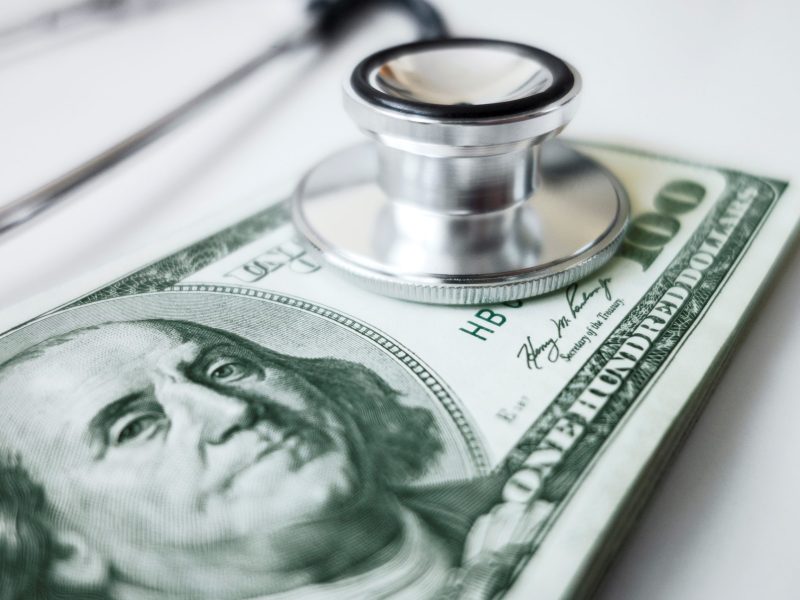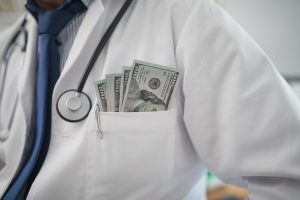While healthcare fraud has been around for a long time, the COVID-19 pandemic certainly opened up a Pandora’s Box of new scams. Using tried and true techniques, fraudsters managed to steal billions of dollars from U.S. healthcare insurance programs such as Medicare and Medicaid. During a time when many were pulling together to help each other, nefarious individuals were and are still calculating how to go after U.S. Government health benefits and vulnerable citizens in order to fatten their bank accounts.
While traditional types of healthcare fraud such as billing for services not rendered, submitting duplicate claims, paying kickbacks, and upcoding are still prevalent, other scams relying on the fears of Americans have excelled. The U.S. Department of Health and Human Services’ (HHS) Office of Inspector General warns the public about how perpetrators are carrying out fraud schemes related to the novel coronavirus through testing sites, telemarketing calls, text messages, social media platforms, and door-to-door visits. Fraudsters typically offer COVID-19 services in exchange for personal details, like Social Security Numbers or Medicare or Medicaid beneficiary numbers, that can be used to fraudulently bill government health care programs and commit medical identity theft.
For a better understanding of how COVID-19-related healthcare fraud schemes have evolved over the past two years, take a look at these high dollar cases:
- As the owner and operator of Vitas Laboratories in Arkansas and Beach Tox in California, Billy Joe Taylor, 42, was allegedly involved in a $88 million scheme tied to submitting hundreds of fraudulent claims for tests, including for COVID-19, that were not ordered or performed. The claims were on the behalf of deceased beneficiaries who could no longer provide samples. The Department of Justice believes that the card shark used some of the money plundered to gamble on a poker livestream channel. (I guess he just didn’t know when to fold ‘em.)
- Leonel Palatnik, owner of Panda Conservation Group and testing laboratories in Tex., and
Stein, the owner of consulting company 1523 Holdings, were allegedly involved in a $73 million conspiracy related to a COVID-19 Kickback fraud scheme. The two conspired to exploit temporary amendments to telehealth restrictions put in place during the pandemic, which extended care to Medicare recipients to more easily receive care at home. They used telehealth providers to authorize thousands of medically unnecessary cancer and cardiovascular genetic testing orders. In exchange, the providers could access beneficiary information and bill for purported telehealth consultations that never occurred. (There was a lot of back scratching going on there.) - New York pharmacy owners Peter Khaim and Arkadiy Khaimov, were charged with participating in a money laundering scheme. They submitted $45 million in false claims to Medicare using COVID-19 ”emergency override” billing codes to avoid pre-authorization requirements and limits for drug refills. (Fraudsters never miss a chance to capitalize on any misfortune.)
These are only three cases involving COVID-19 related healthcare fraud. You can expect to see even more as we either emerge from the pandemic or continue to experience different variants of the virus. (Let’s hope it’s the former.)
Just keep in mind that scammers love to prey on COVID-19 fears. (We’re not exactly out of the woods yet.) If anyone offers you a test or cure in exchange for personal information, run away. (No, really. Run.) If you don’t recognize the phone number don’t pick up the call. Don’t respond to any texts with hyperlinks. (In fact, block the number.) Refrain from clicking on any social media ads (and don’t answer the door when anyone you don’t recognize comes a knockin’.)
COVID-19 healthcare fraud is fast evolving. Reach out to your doctor or medical community if you have questions about COVID-19 testing or treatments, not someone trying to sell you ”snake oil.” And last, but not least, if you suspect healthcare fraud of any type, take action. Report it online at OIG.HHS.gov or call 1-800-HHS-TIPS (447-8477).




